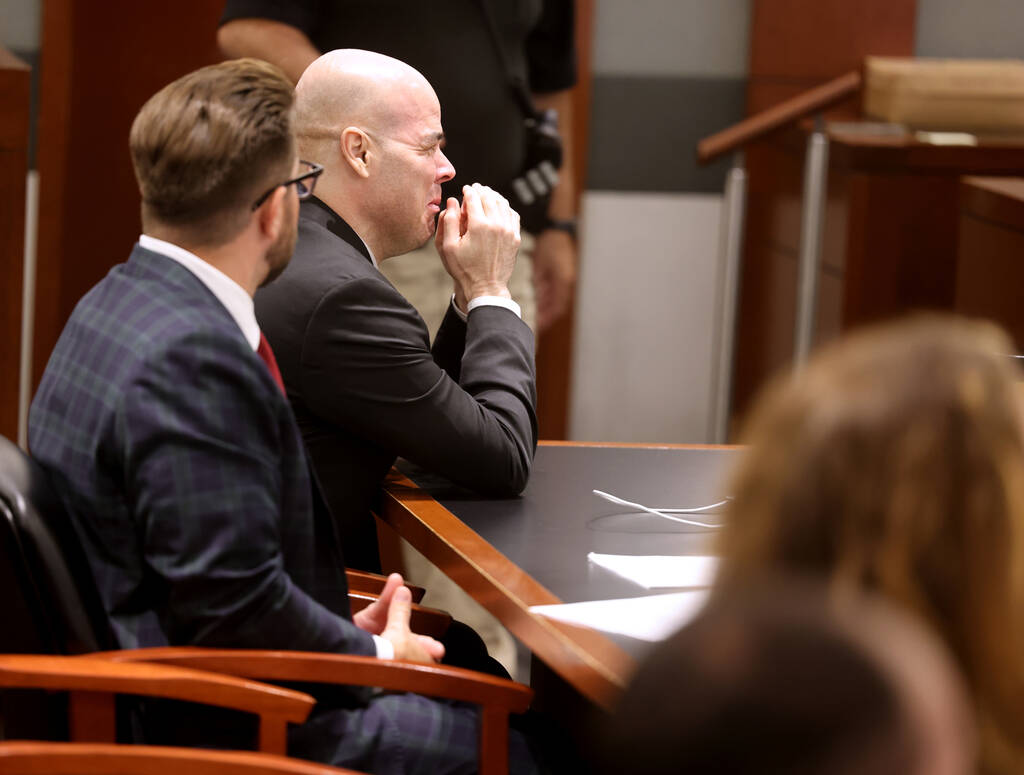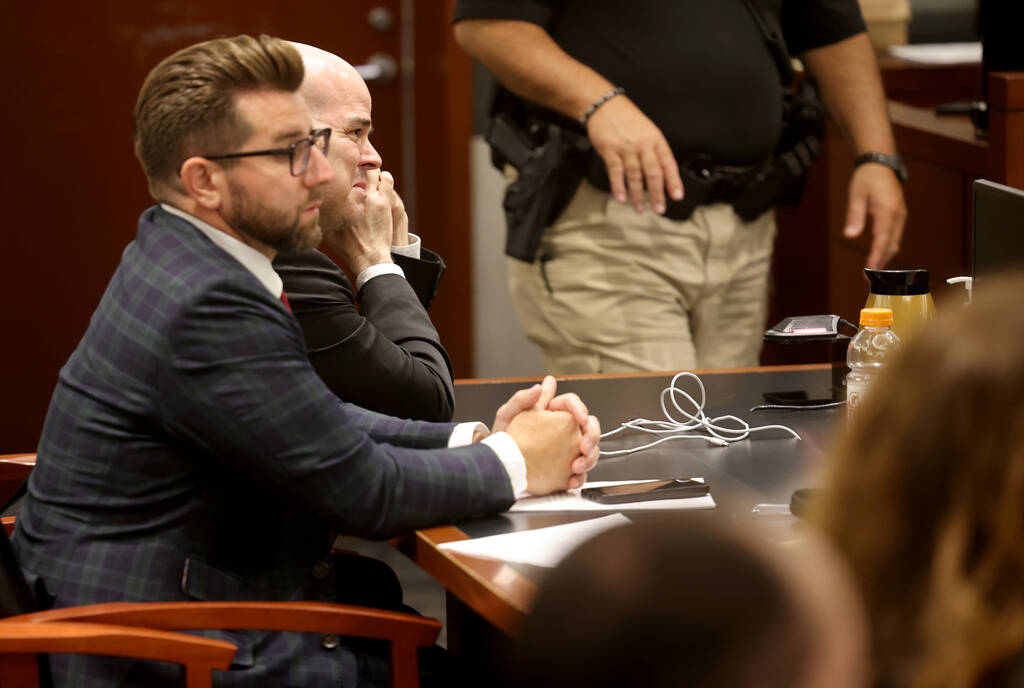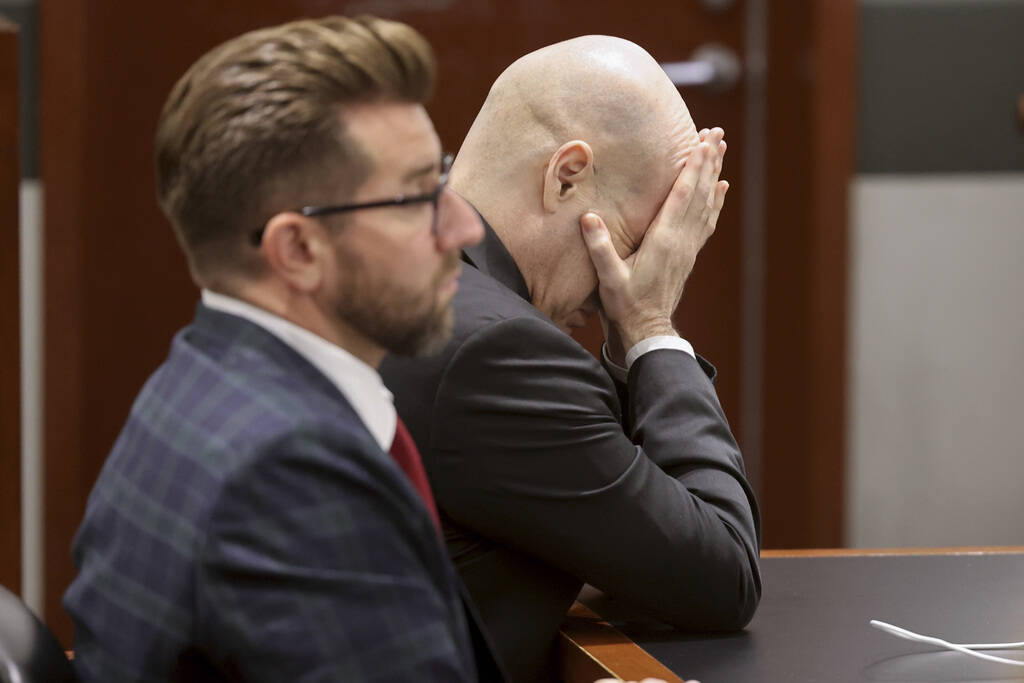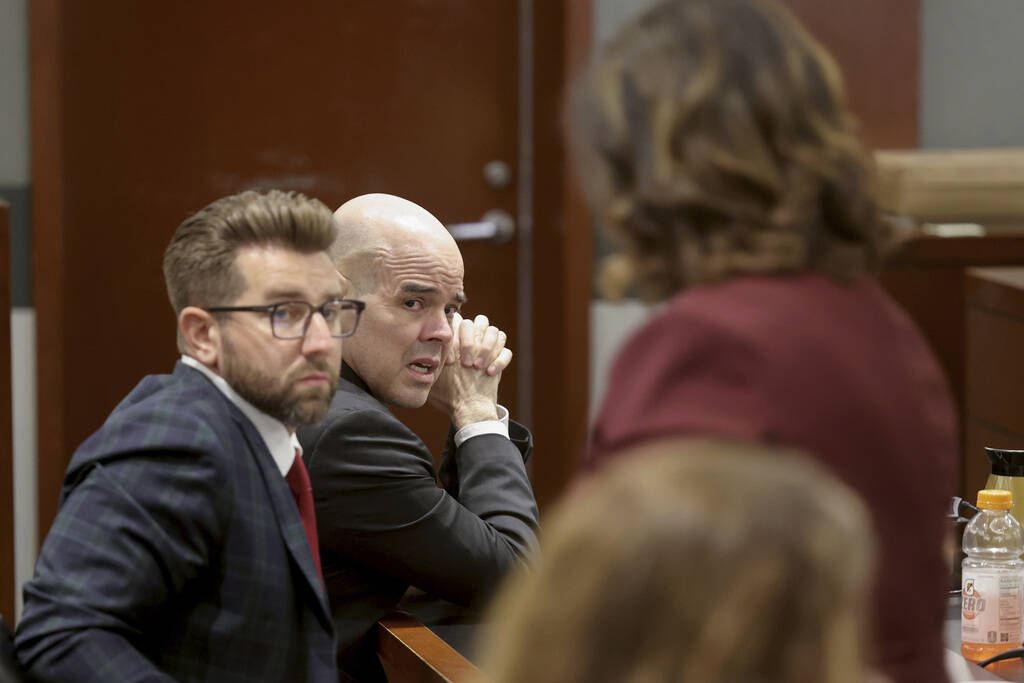Prosecutors oppose Robert Telles’ hearing request following guilty verdict
Prosecutors are opposing former Clark County Public Administrator Robert Telles’ request for a judge to set an evidentiary hearing to clarify statements jurors made in a newspaper article, after Telles was found guilty of murdering Las Vegas Review-Journal investigative reporter Jeff German.
Deliberations stretched across three days last month before a jury found Telles guilty of first-degree murder with a deadly weapon against a victim 60 or older. Prosecutors have said that Telles, 47, stabbed German to death outside the reporter’s home in September 2022 over articles German had written about Telles’ conduct as an elected official, including allegations he created a toxic work environment and carried out an affair with a staffer.
Telles’ defense attorney, Robert Draskovich, filed a motion last week asking for District Judge Michele Leavitt to grant an evidentiary hearing to “clarify and supplement the record” after several jurors spoke to reporters following the trial. Draskovich argued in the motion that several jurors may have had outside knowledge of the case, and there may have been an instance of outside communication between jurors and the judge.
Prosecutors wrote in a motion filed Wednesday that there is not a “legal basis to entertain this request,” because Telles was not requesting a new trial based on a claim of juror misconduct.
Chief Deputy District Attorney Christopher Hamner, who wrote the motion, also argued that questioning jurors about statements quoted in a Review-Journal article would require inquiring about their “internal deliberations.”
“Calling jurors in to discuss this matter at an evidentiary hearing would be improper,” Hamner wrote, arguing that it would involve examining a juror’s internal thought process during deliberations, “and that cannot be used to impeach a jury verdict under state and federal law.”
Draskovich wrote in the defense motion that in a Review-Journal article, a juror referenced Telles’ claim that he went for a walk the day German was killed, during a “100-degree day.” The motion states that because the day’s high temperature was not included in evidence, the jury may have “received this information from a third party or consulted the Internet.”
Hamner argued in Wednesday’s motion that jurors are allowed to use their “common sense” when evaluating evidence, and that 100-degree days are common in September in Las Vegas.
“Las Vegas is currently suffering from a string of 100-degree days in September of this year at the time of the writing of this brief,” Hamner wrote in a footnote.
The three jurors who spoke to the Review-Journal after the trial described the deliberations and recalled sending a note to the judge asking for direction. Two jurors remembered the judge responding with a note of her own, instructing them to continue deliberating. Another juror said a marshal told the jury he would show the note to the judge, and that the marshal said to continue deliberations.
The defense motion noted that a defendant has a right to be present when a judge communicates to the jury. But the prosecution’s motion stated that the judge did tell attorneys about the jury question and “made the question a court exhibit.”
Before the jury was called into the room to announce its verdict last month, Leavitt told the court that notes from the jury were being entered into evidence exhibits, according to a recording of the hearing. Attorneys did not discuss in court what those notes were about.
A hearing on Telles’ motion requesting the evidentiary hearing is scheduled for Oct. 2.
Contact Katelyn Newberg at knewberg@reviewjournal.com or 702-383-0240.


























